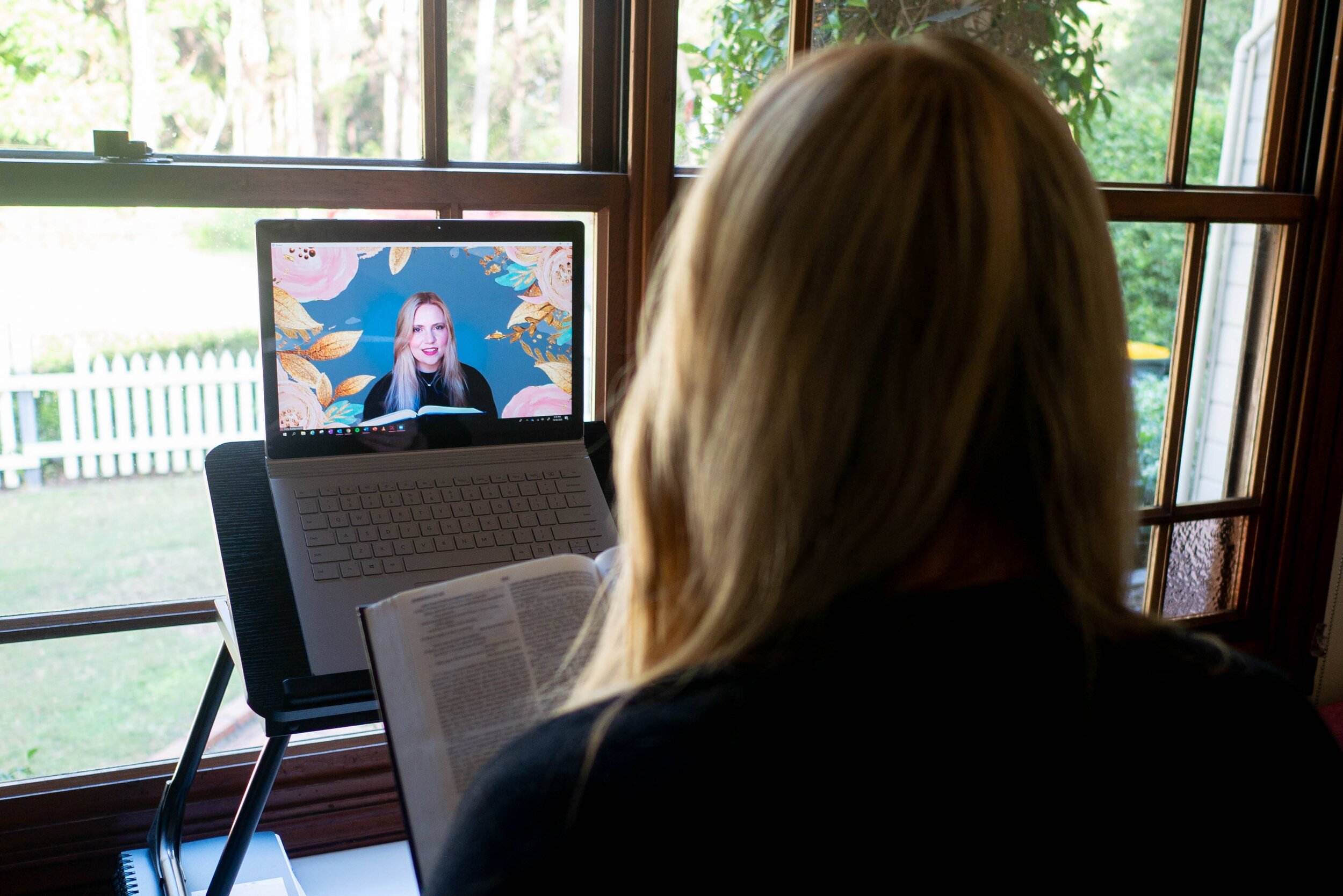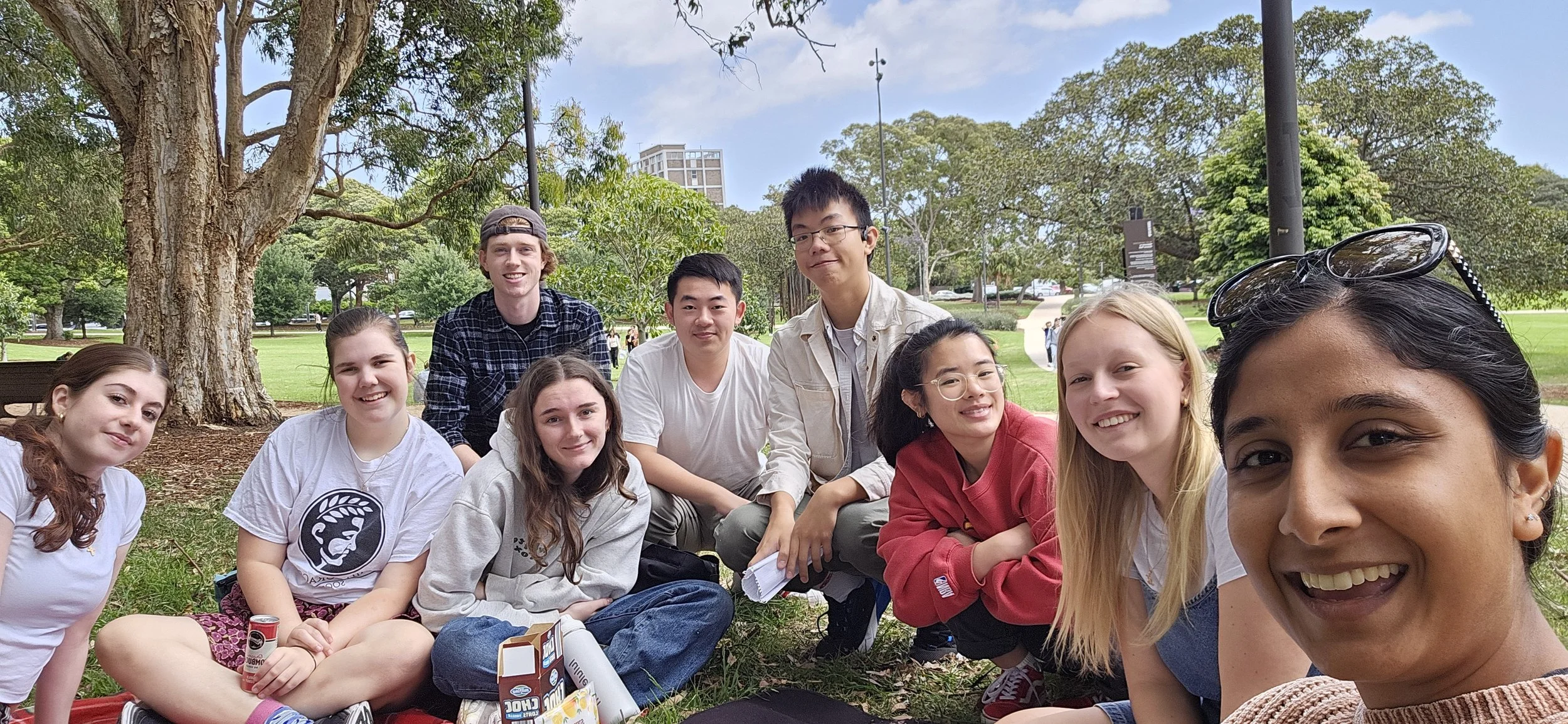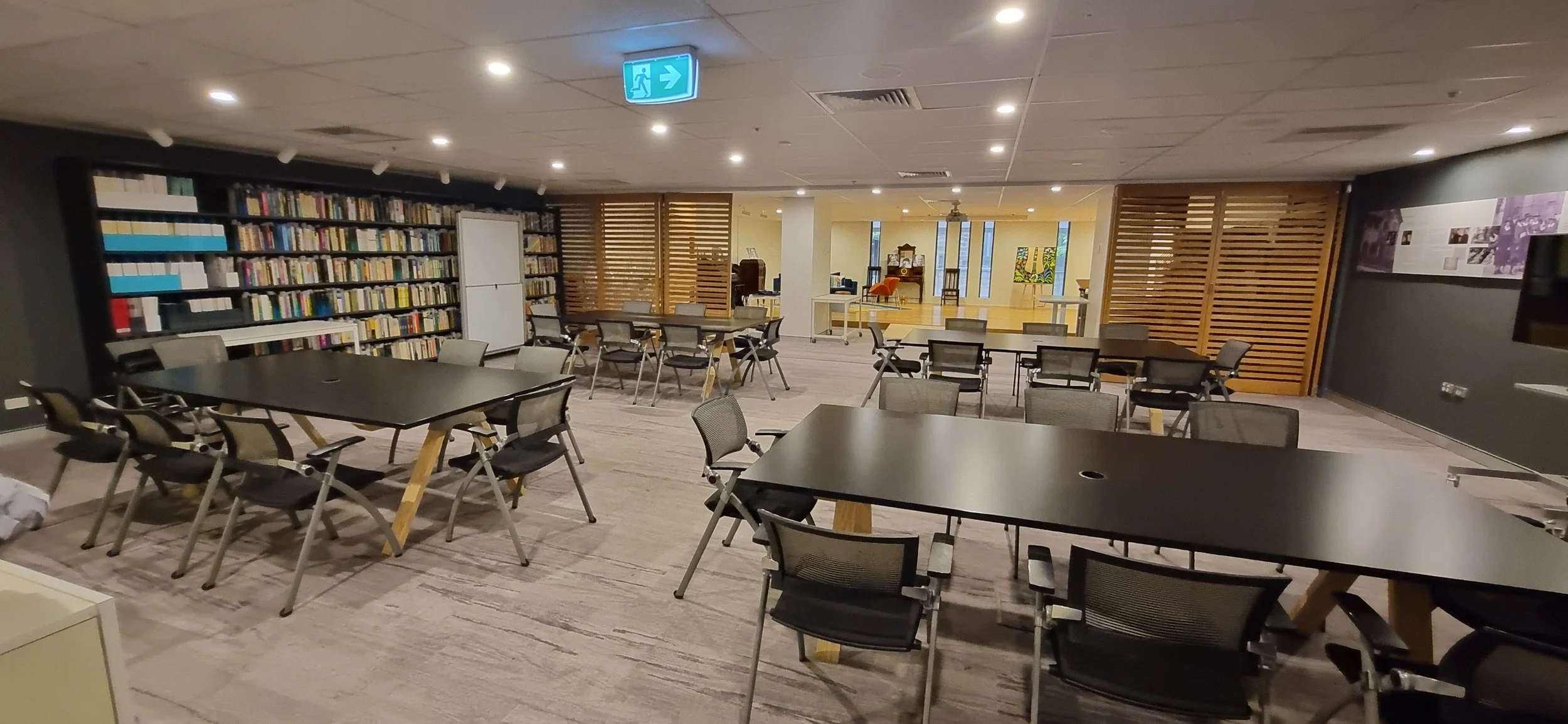Not the year I’d planned
New Deacon Rev. Polly Butterworth helps retool school chaplaincy for COVID19
By Elisabeth Carter
Polly Butterworth had a big first few months in 2020.
The year started as most do as she resumed her role as Assistant Chaplain at Abbotsleigh after the summer break, planning classes, preparing sermons and praying for God’s help in her ministry to high school girls. Then in February Polly celebrated her ordination as a deacon in the Sydney Anglican Diocese.
Rev. Polly Butterworth (centre) celebrates her ordination, with Rev. Jenni Stoddart, Chaplain at Abbotsleigh and also Chair of ADM’s board ( 6th from left)
“Some people still place importance on being a reverend. That’s a good and a bad thing,” the now Reverend Polly Butterworth says of her ordination. “We believe in a priesthood of all believers, so there is nothing any more special about me now that I’m ordained, but it does help with parents and other staff who know that I am someone they can go to to speak about ‘God stuff’.”
As one of just two women ordained this year, Polly, 29, a graduate of Moore College, recognises the significance of her new status. “Ever since the New Testament, women have been deacons and servants of the gospel,” she says. “I’m not too keen on being a political statement, but I’m happy if it encourages women to think about ministry in a full-time capacity. I definitely encourage other women to get ordained.”
Following her ordination, it was back to school, but not for long. The global pandemic upended the year’s plans. That meant she and the team of which she’s a part—under the leadership of Chaplain Rev. Jenni Stoddart who is also Chair of ADM’s board—had to rethink school chaplaincy without losing their passion.
Polly dove in. In fact, she loves her job because it merges her interests and passions with the skills she has in teaching and ministry. “In chaplaincy, you are given opportunities on a platter to speak about the gospel openly and freely,” the new Reverend says. “I love thinking about how to do that in a way that’s engaging and meaningful and interesting.”
One of the main challenges of her ministry is allowing for the flexibility that often comes with relational, and at times sporadic ministry opportunities within a more rigid school timetable. Christian Studies has curriculum and assessment tasks, but also brings to the forefront significant personal questions about life’s purpose.
“It’s opened up this cool opportunity to be the place where community happens, which our students are lacking. Everyone at the moment, no matter who you talk to, is realising how important community is, and so we want to show that Jesus invites us to a great communion – communion with God, first and foremost, but also communion with other people.”
“My aim as I teach is to promote the gospel and answer students’ real concerns about life and faith,” she says. “There is a constant balance between answering every question about suffering, or addressing every tangent about the historicity of Jesus, and still meeting the requirements of teaching in a school.”
Another challenge of ministry at a school—even outside of a pandemic—is busyness. “Girls (seem to) get the most out of things that are voluntary like the CRU (lunchtime Christian) group or knocking on the staffroom door to ask a question,” Polly explains. “But trying to get girls to do those voluntary things is really difficult when there are a million other things they could be doing in the school day.”
So when the normal rhythm of school was turned on its head in March, Abbotsleigh responded to COVID-19 by moving to online learning. With so much stripped out of the school week – sports practice, music groups, and other extra-curricular activities – chapel and lunchtime Christian meetings could have fallen by the wayside. But Abbotsleigh’s chaplains committed to continuing their Christian input in the new online space.
“We want to show that the gospel is still really important,” Polly says. “And it’s opened up this cool opportunity to be the place where community happens, which our students are lacking. Everyone at the moment, no matter who you talk to, is realising how important community is, and so we want to show that Jesus invites us to a great communion – communion with God, first and foremost, but also communion with other people.”
Adapting to the new technology has presented new ministry challenges for Polly’s team.
Adapting to the new technology has presented new ministry challenges for Polly’s team, which has meant they’ve had to explore new ways students could contribute to chapel in the new context.
“At Easter, we asked the girls to answer the question ‘What is hope?’ on a piece of paper and then we made all their answers and drawings into a video,” she says. “We want the girls to see that they are a part of a bigger picture.”
Polly also recognises the value of teachers being pushed outside their comfort zone. “When things go back to normal, we’ll have all this stuff in our toolbox to foster both virtual and real life interaction,” she says. “Hopefully we can use the strengths of both types of teaching to produce the most useful, creative and faithful lessons.”
Along with her fellow chaplains and Christian studies teachers, Polly has noticed students seem more appreciative of the Christian input they receive from school, with one student even expressing gratitude that in Christian Studies they get to talk about “big important things.”
“The girls we teach have a framework other than academia that they can think about in times like this,” Polly said. “Even if it’s challenging for them, they can think about how God fits into this.”
These months are certainly not what the Rev. Polly Butterworth expected for her first year of ordained ministry, but she says she’s trying to trust God’s plans and make the most of whatever opportunities she has to speak peace, hope and truth into the lives of her teenage students.
“People are anxious and scared, but when we can talk about Jesus being a sure and secure hope amidst this, or about Jesus calming the storm, having power and sovereignty, that is real and relevant,” she says. “Life is turbulent, but it opens up space for the gospel (for these girls).”
Please pray for chaplains like Polly who are seeking to raise up the next generation of Christian women to serve God and display his grace to the world – even amidst the challenges of COVID-19.













Bibles and barbecues: how Living Water is reaching Redfern
Living Water, a church plant under the Evangelism and New Churches arm of the Anglican Diocese of Sydney, regularly holds services and gatherings in Redfern Park, rather than inside their building. By doing this, they are better able to engage with the community of Redfern, and also support their largely Indigenous congregation to embrace their connection to country.
Recently, Living Water Church, through one of their team members Bridget Allen, were recipients of a Women in Ministry Support Scheme grant from ADM. Part of this grant has been used to purchase a portable barbeque which the church uses to cook during their outside gatherings. This can draw a crowd as people approach for a tasty meal, and then meet the church members and hear the gospel proclaimed.